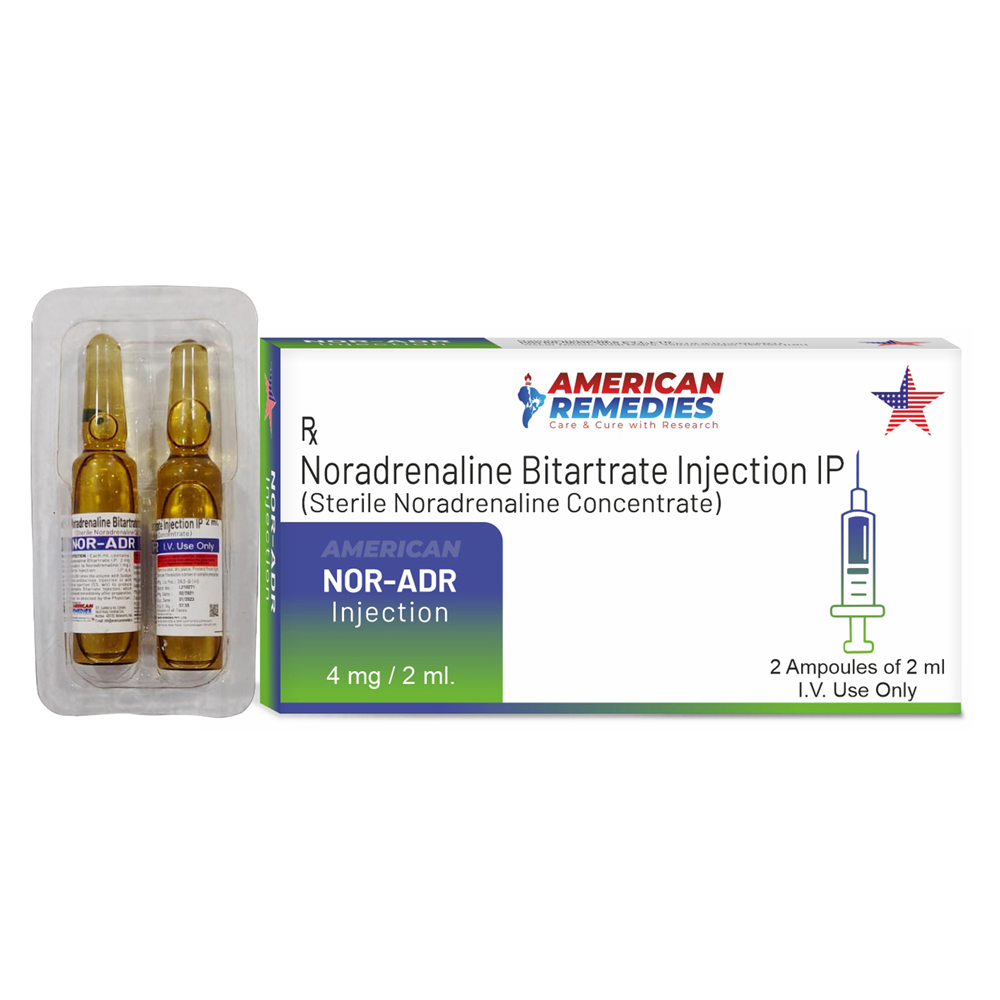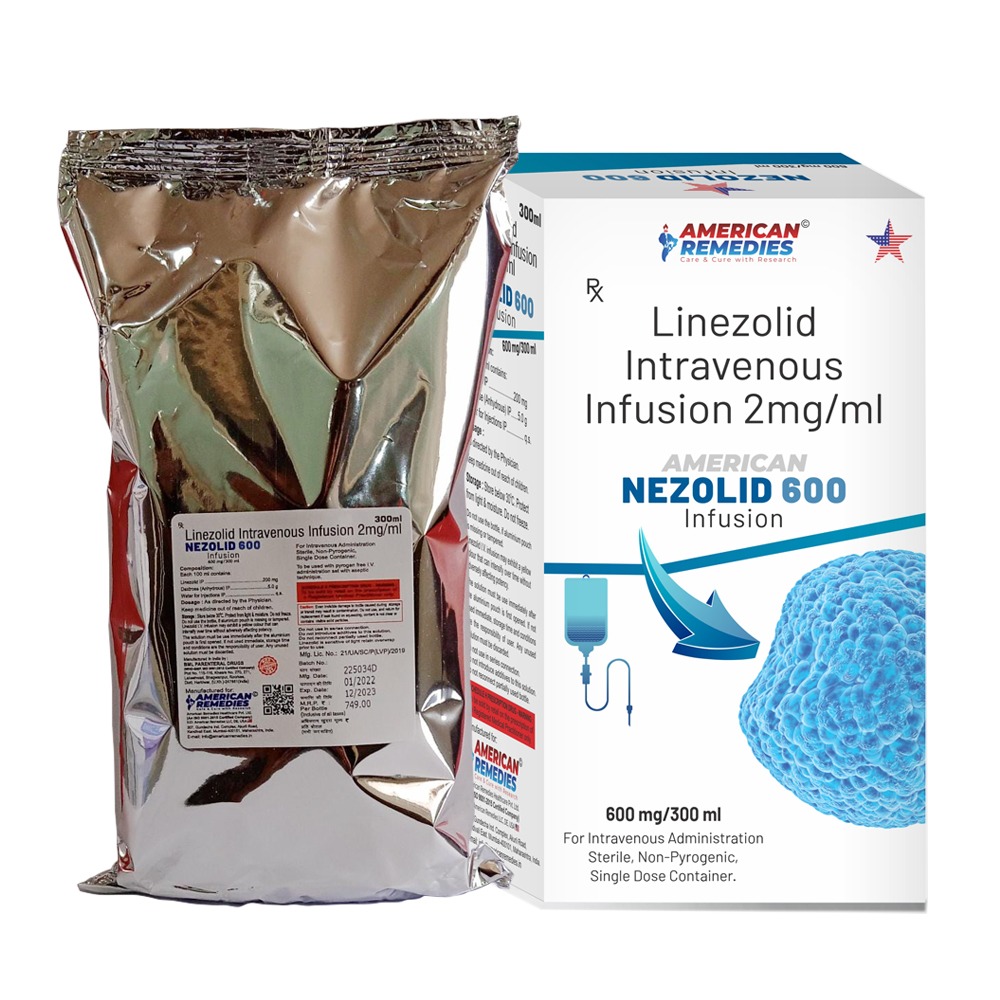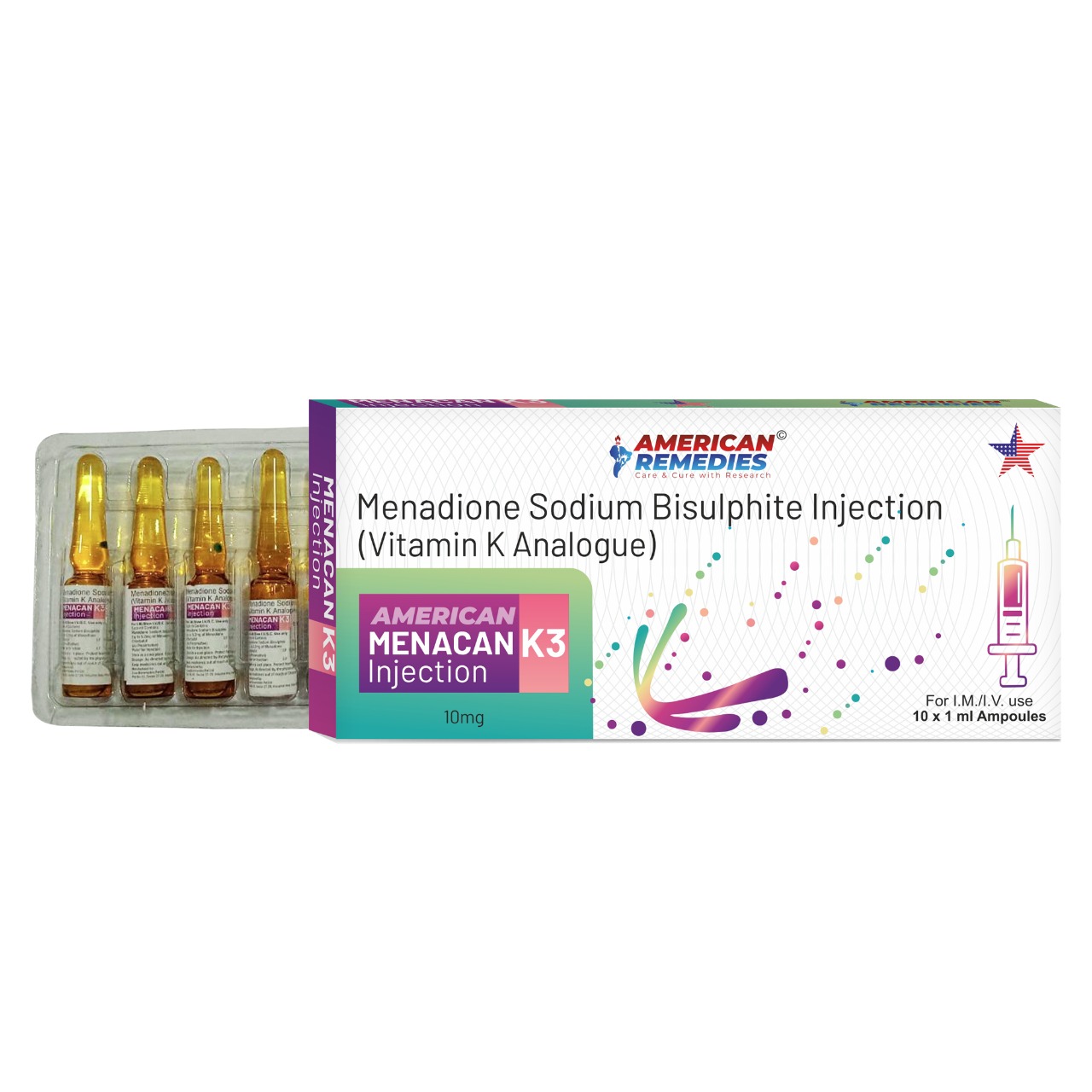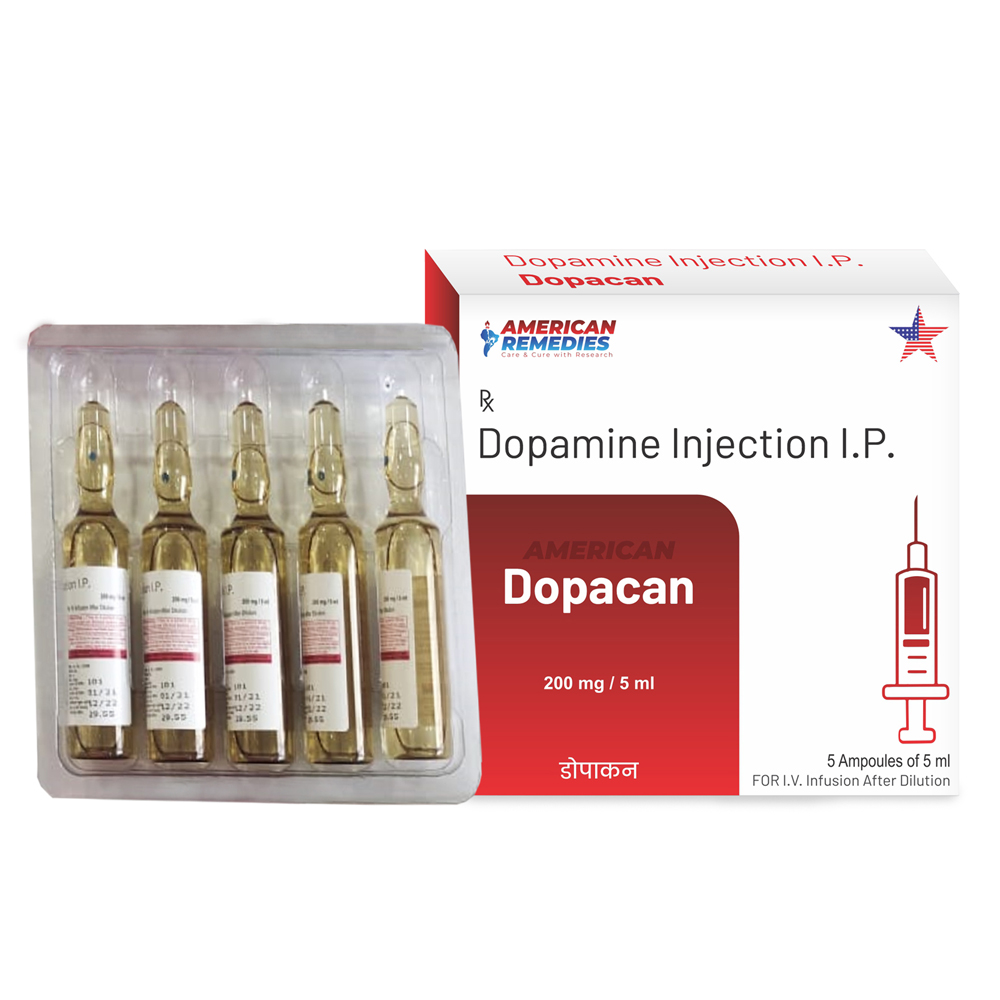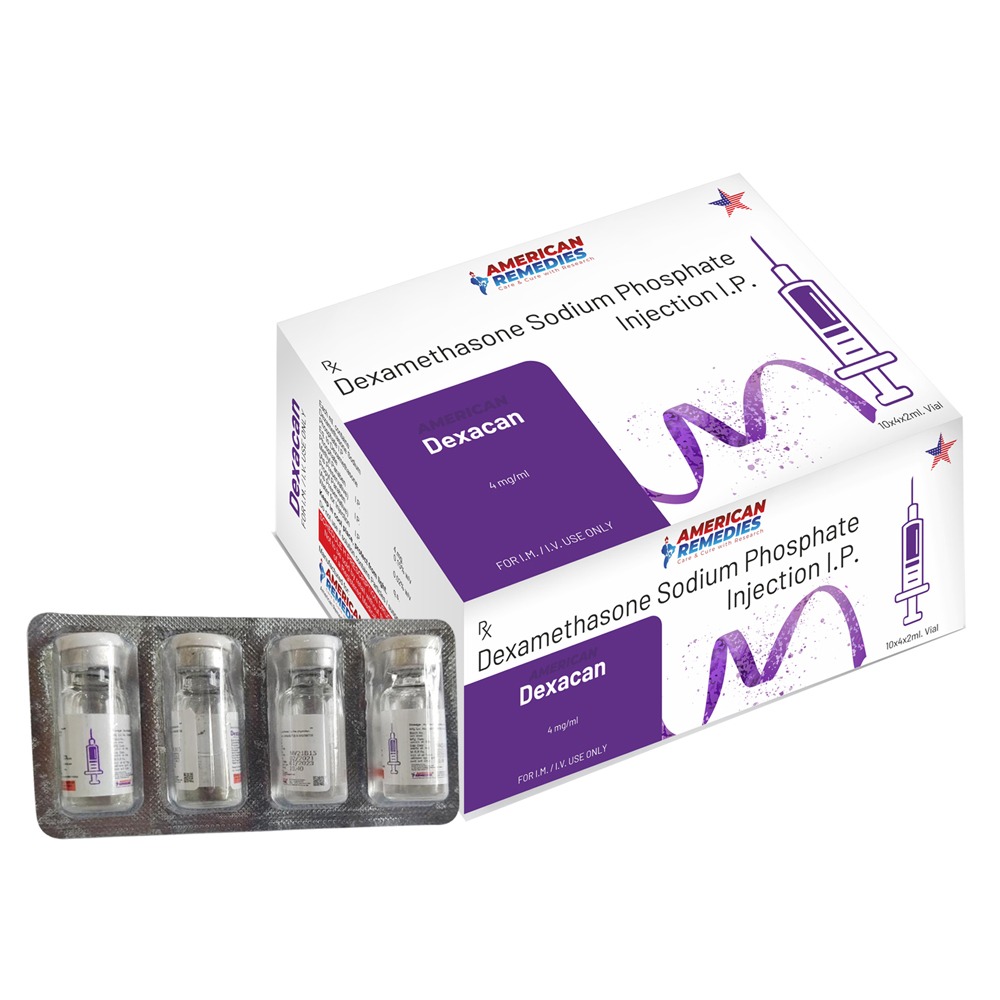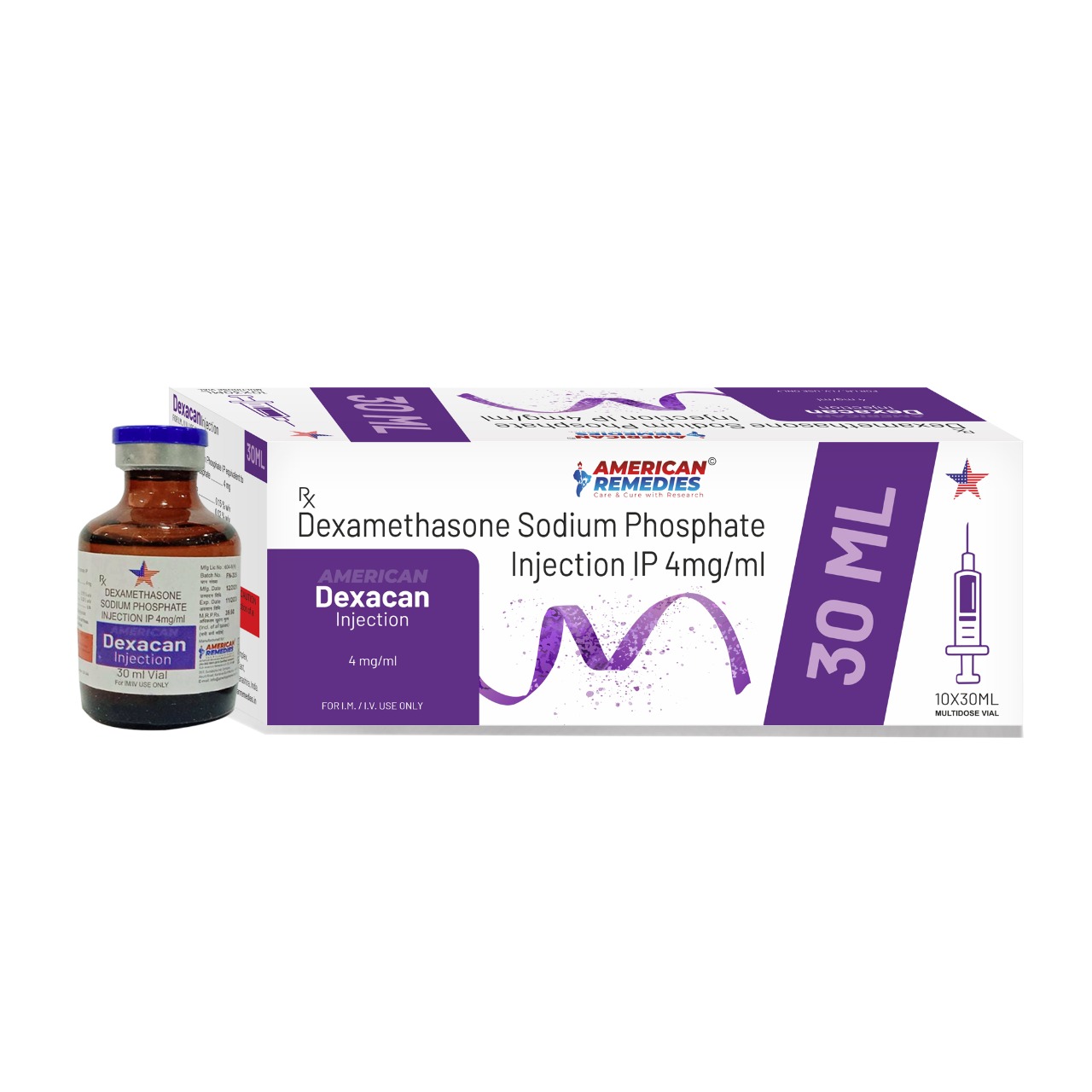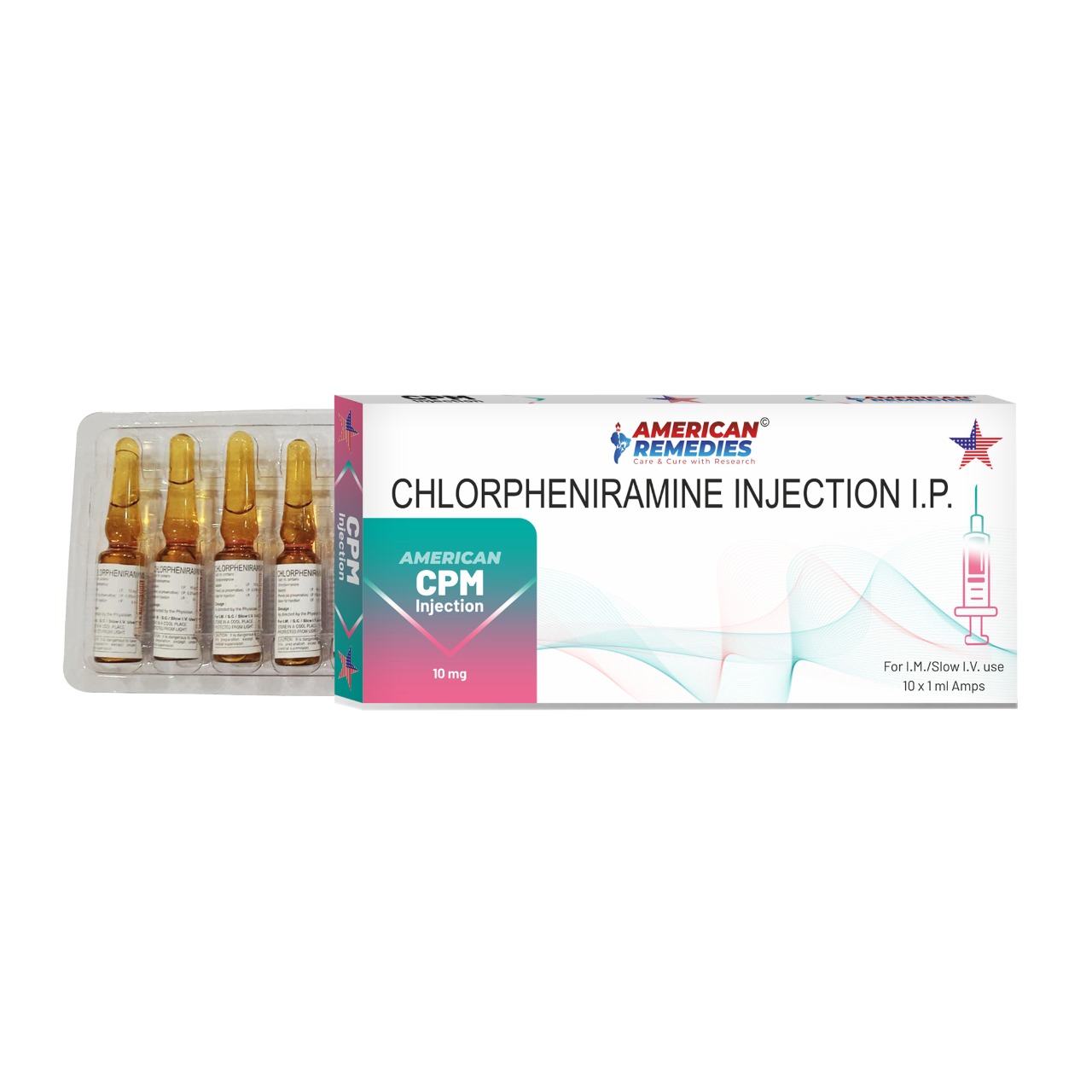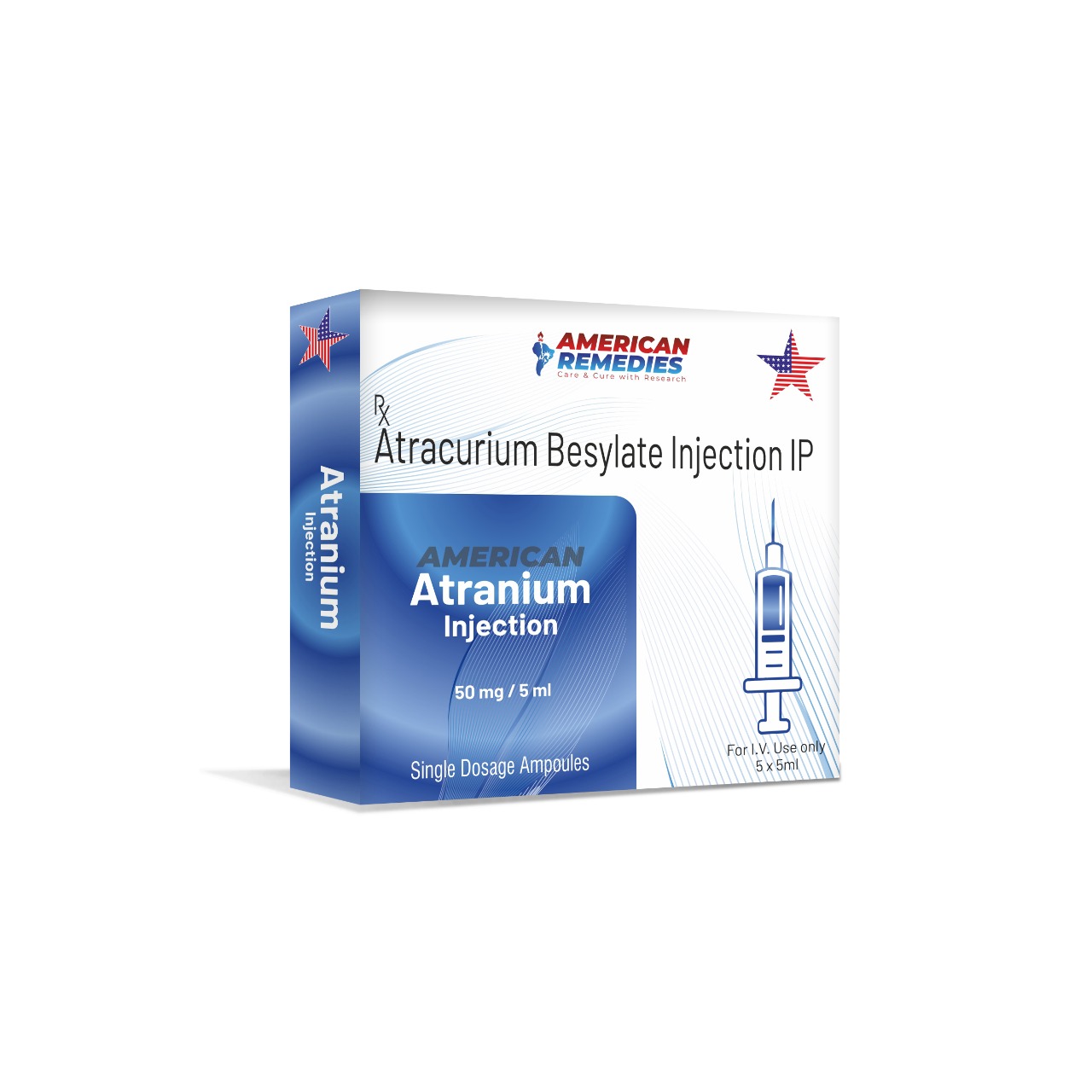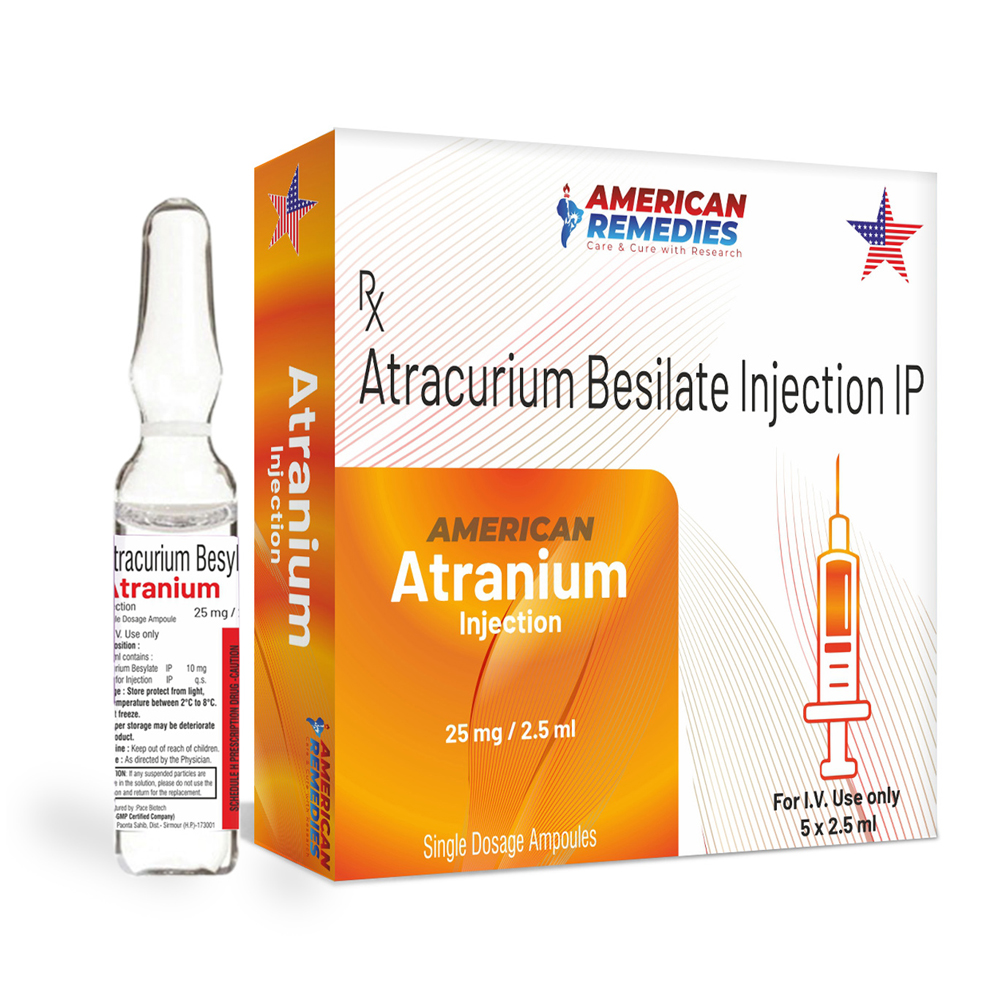Nor-ADR Injection is a brand of Noradrenaline (Norepinephrine) Bitartrate Injection, manufactured by American Remedies. It is primarily used in critical care settings to manage severe hypotension (low blood pressure) and shock. ________________________________________ ✅ Primary Uses Nor-ADR Injection is indicated for: • Septic Shock: A life-threatening condition caused by severe infection leading to dangerously low blood pressure. • Cardiogenic Shock: A state where the heart is unable to pump sufficient blood to meet the body's needs. Anaphylactic Shock: A severe allergic reaction causing a sudden drop in blood pressure. • Hypotension During Surgery or Trauma: To maintain adequate blood pressure during and after surgical procedures or traumatic events. • Cardiac Arrest: As an adjunct in the management of cardiac arrest to improve blood flow to vital organs. These indications are supported by clinical guidelines and pharmacological references. ________________________________________ ⚙️ Mechanism of Action Noradrenaline is a potent vasopressor that works by: Alpha-1 Adrenergic Receptor Activation: Causing vasoconstriction, which increases systemic vascular resistance and raises blood pressure. • Beta-1 Adrenergic Receptor Activation: Increasing heart rate and myocardial contractility, thereby enhancing cardiac output. This dual action helps restore blood pressure and improve perfusion to vital organs in shock states. ________________________________________ ⚠️ Precautions and Side Effects Precautions: • Administration: Should be administered intravenously under strict medical supervision, typically in an intensive care unit (ICU) setting. • Monitoring: Continuous monitoring of blood pressure and heart rate is essential during administration. • Contraindications: Should not be used in patients with mesenteric or peripheral vascular thrombosis unless absolutely necessary. Common Side Effects: • Hypertension (high blood pressure) • Headache Nausea • Anxiety • Dizziness Serious Side Effects: • Arrhythmias (irregular heartbeats) • Tissue necrosis at the injection site • Reduced renal perfusion leading to renal failure Immediate medical attention is required if any serious side effects occur.
Send Message